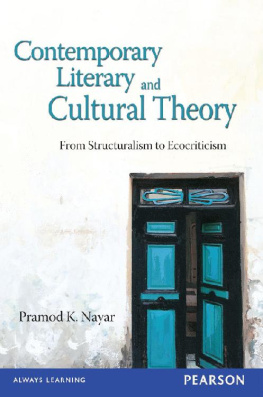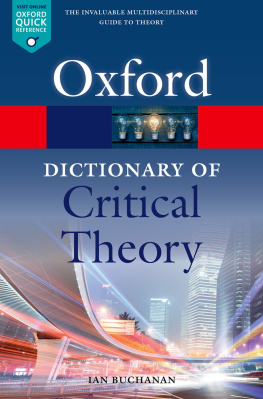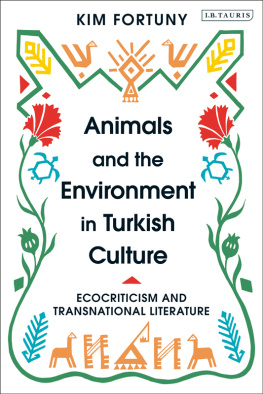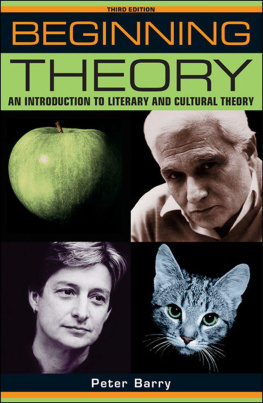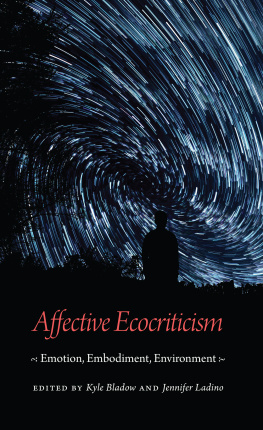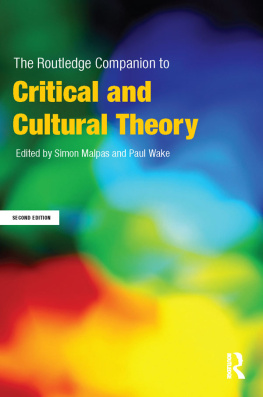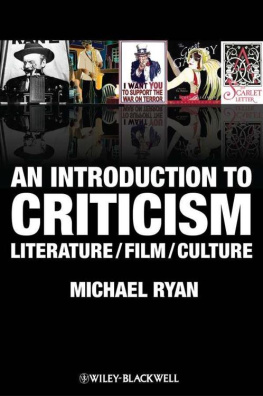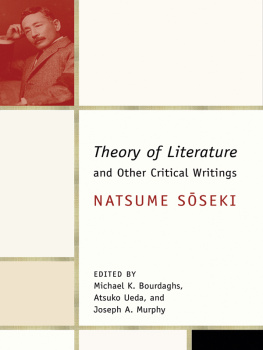Among his interests are English colonial writing on India, literary and cultural theory, postcolonial literature, and cultural studies. His published books include English Writing and India, 16001920: Colonizing Aesthetics (2008); The Trial of Bahadur Shah Zafar (2007); The Great Uprising: India, 1857 (2007); The Penguin 1857 Reader (2007); Reading Culture: Theory, Praxis, Politics (2006); Virtual Worlds: Culture and Politics in the Age of Cybertechnology (2004); Literary Theory Today (2002); etc.
Prefacing Theory
What is Theory and why are they saying such terrible things about it? (and who, to indulge in paranoiac criticism, are they anyway?) To take the second part of the question first, they say terrible things about Theory because much of it is admittedly jargon-ridden and incomprehensible, but also (and this is the uncharitable answer) because (i) it takes considerable patience and effort to understand the key essays and most diatribes against Theory come from people who don't want to make the effort and (ii) it destabilizes authority over interpretation, and authority is what teachers (especially teachers of literary studies) seek to impose over texts, meanings and readers.
A preface is supposed to propose in advance, its pre makes, as one philosopher put it, the future present, where the main text is presaged: it puts before the reader's eye what is not yet visible (Derrida 2004 [1981]: 78). It also functions, according to another commentator, to ensure that the text is read properly, to provide the author's statement of intent (Genette 1997: 197, 221). If these thinkers are correct, then prefacing theory is a statement of intention, an introduction (a warning, perhaps?) to what this book does (as to whether there is a correct way of readinganythingI am not so sure). Prefacing Theory is a defence, a justification and a manifesto.

Literary Theory is the organized, systematized analysis of literary texts, the institution of Literature (with L in upper case) and a reflection on the interpretative strategies applied to these texts. Cultural Theory moves beyond literary texts and studies art forms, film, the superhero comic book, sports, fashionall cultural practices, of which Literature is one. Contemporary literary and cultural theory, which is how this book positions it, has conceptual, general, political and methodological questions that it asks of cultural practices. It seeks to understand modes of interpretation, of how knowledge is formed and distributed, the pedagogici.e., teaching, classroom and educativerole of literary texts, the philosophical basis of metaphors or image-making, the historical location and sources of texts (by texts we now mean any form of representation, from fiction to film to the Google opening menu) and interpretation, the psychological (individual or collective) roots of particular kinds of images or representations and the political consequences of literary and cultural representations. Thus, Theory now is not restricted to literary texts or literary approaches to, say, the novel, but has widened out into other domains. Such multiple roots of Theory in anthropology, psychoanalysis and philosophy in addition to traditional literary criticism, generates its complexity, its political edge, its jargon, its agenda and (to its more sophisticated users) its riveting analytical rigour. The most sophisticated approaches to literary texts have, at least since the mid-1960s, come from these diverse, non-literary fields. Studies of anthropology, of history or of art have influenced the way we read literary texts.
Theory speculates on meaning-making, practices of representation and consumption, on the relation of social structures and meanings in films and books, on the nature of knowledge produced, on abstract realities like dreams or desires, on the visible effects of invisible forces like power or structures like class. But such speculation cannot be taken as mere extended and random fantasizing. Theory's speculation is based on close studies of words, images, sounds, structures and economics. Speculation here gestures at the unquantifiable effects of words and social practices, but it is also taken to mean a careful, considered reflection on how these practices work, of the language in which power or desire operates in film or image or words. Barbara Johnson's translator's introduction to Derrida's Dissemination is a useful description of Theory itself:
the deconstruction of a text does not proceed by random doubt or generalized skepticism, but by the careful teasing out of warring forces of signification within the text itself. If anything is destroyed in a deconstructive reading, it is not meaning but the claim to unequivocal domination of one mode of signifying over another. (Johnson 2004: xv, emphasis in original)
No doubt this is the kind of language that gives Theory a bad name, but the point Johnson is making is a general one about the work of Theory itself. Theory works to show how one meaning or meaning-practice (signifying) has often been given importance over another. The task of Theory is to reveal this process of rejecting or marginalizing one meaning in favour of another and claiming that this privileged meaning is natural. Meanings of texts are never final or naturalthey are formed through practices of representation and interpretation. Theory shows how certain kinds of representation and interpretation propose a natural meaning.
Theory etymologically comes from the Greek theoria, which means contemplation, speculation, a looking at, things looked at, and is linked to theorein (to consider, speculate, look at) and theoros (spectator) and thea (a view) and horan (to see). Theory thus gestures at several things at once: to speculate and contemplate but also to see. Theoryand this is the simplest explanationis a way of seeing, a way of looking very, very closely at texts. Theory is a way of seeing how meaning emerges in any cultural practice whether film or fiction, architecture or fashion. Theory is the practice of reading itself, but a reading of how we read buildings, road signs, dance forms, novels, newspapers or political developments. Theory is the study of the production of meaning in texts, the distribution of this meaning in various forms (genres of literature, but also in rhetoric, visual culture) and the reception of these meanings. In its detailed analysis of meaning-practices, Theory studies authors, readers, texts and contexts. It examines the genre, the medium, the language and the register of films, novels, advertising, political speeches and clothes.
Theory is an examination of meaning-practices. Theory is thus political because meaningswhether in classic literature where Homer's male heroes become more important than his women or in popular films where the patriarchal family is praised as the ideal stateare always political, whether they deal with the politics at the level of the nation or that of the family.

